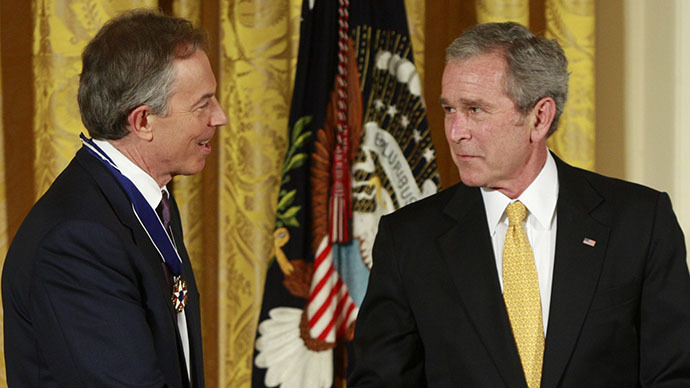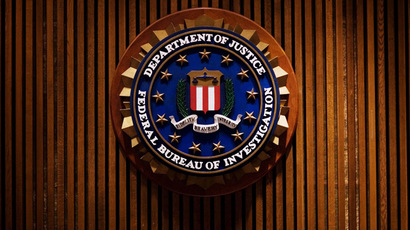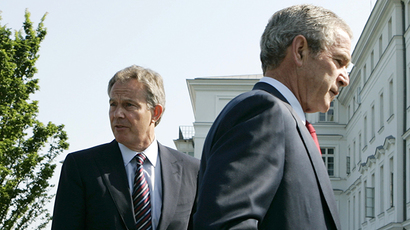‘Gist’ of Blair-Bush secret Iraq war communications to be disclosed to public

An agreement to release details of communications between former British Prime Minister Tony Blair and ex-US President George W. Bush has been reached, promising to finally make public some extracts from sensitive conversations prior to the 2003 Iraq war.
The classified information is likely to be released as part of
the Iraq inquiry – or Chilcot inquiry, after its chairman Sir
John Chilcot – which was announced in June 2009 by Britain's
then-Prime Minister Gordon Brown. The investigation aims to
explore the UK's role in the Iraq war. The inquiry completed
public hearings in 2011, and it was hoped the details would be
delivered the same year.
The long-delayed details of the inquiry came one step closer to
publication on May 29, when a deal was reached between the
inquiry and the Cabinet Office on how to release confidential
documents.
The problem concerned 25 so-called “notes,” more than
130 records of conversations between the two then leaders, and
some 200 cabinet-level discussions. While the inquiry was
originally focused on Blair's involvement in the war and aimed at
learning lessons from the US-led invasion and its aftermath, the
US reportedly opposed the publication of classified material
concerning George W. Bush.
In a deal that has now been reached, the inquiry may be allowed
to publish some quotes, but those will be kept to the
"minimum necessary to enable the inquiry articulate its
conclusions," and "consideration will be based on the
principle that our use of this material should not reflect
President's Bush views," Chilcot said.
Tony Blair has been previously blamed for blocking the release of
the secret communications. He has repeatedly denied the
accusations, saying: "I don't know what the reason for the
delay is because I'm not in charge of the inquiry and not in
charge of the Government," adding that he has "as much
interest as anyone in seeing the inquiry publish its findings and
then be able to go out and frankly restate my case and defend my
position."
A national election will be held in Britain in May 2015,
contested by David Cameron's Conservative party and the
opposition Labour party – once led by Blair. It has been argued
that the latter deliberately misled the public over the reason he
decided to commit 45,000 British troops to the invasion in Iraq,
as alleged former Iraqi President Saddam Hussein's illegal
weapons of mass destruction have never been found.
The date of publication has yet to be agreed, and "detailed
consideration of the gists and quotes requested by the Inquiry
has now begun.” It is not yet clear how long that will take,
Chilcot added.














